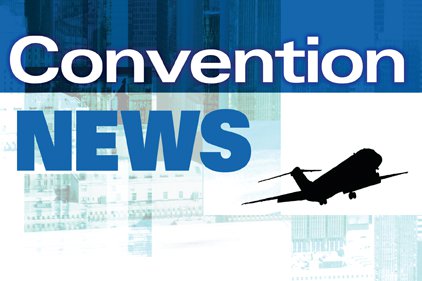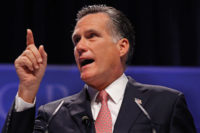 Why are companies not known for selling safety products, such as Staples, Cintas, Caterpillar, Honeywell, and Kimberly-Clark all here at the 2013 NSC Congress & Expo -- a number of them with expansive floor space? (It should be noted that Honeywell owns well-known safety ‘legacy’ brands such as Uvex, Miller Fall Protection, Salisbury FR and Howard Leight hearing protection.)
Why are companies not known for selling safety products, such as Staples, Cintas, Caterpillar, Honeywell, and Kimberly-Clark all here at the 2013 NSC Congress & Expo -- a number of them with expansive floor space? (It should be noted that Honeywell owns well-known safety ‘legacy’ brands such as Uvex, Miller Fall Protection, Salisbury FR and Howard Leight hearing protection.)
And why are national traditional maintenance, repair and operations (MRO) distributors such as Grainger and Fastenal making a show of it here in Chicago? Airgas is a different kind of distributor, and has also pushed heavily into safety.
Could it be we are seeing a paradigm change (excuse the cliché) in safety?
Here is one veteran of safety distributor sales, Bob Risk (great name, eh?) of Staples, offering his take:
“Safety used to be a joke, you know. Back in the ‘40s, a guy falls off a beam on a skyscraper going up, oh, too bad. But… accidents will happen.”
The driver more than half a century later is not OSHA compliance, according to Bob. “I really believe a number of CEOs and managers now view their employees as assets. They can’t afford to lose people to eight or ten accidents a year, or even one fatality. So now these companies are investing in safety. They understand the pay-off. Some spend on safety out of, you’d say, humanitarian reasons. And still others are doing so because they now understand the cost of injuries, and how much extra sales they need to make to make up for the loss. I swear, people are opening their eyes to safety like never before.”
The 24/7/364 news cycle-saturation is another driver, according to Mr. Risk. “Used to be if a guy got killed in a petro plant, maybe that made the local paper. Now with this great hunger for news, 150 cable channels and all, that story will be picked up and people everywhere can find out. Especially if there is an explosion or if a number of workers were hurt or killed.
“The same goes with emergency preparedness. Hospitals, schools, insurance companies, as well as general industry, are all much more aware of the wicked weather we’ve had in recent years. They can’t afford to be shut down for weeks due to a flood, mudslide, fires, earthquakes, hurricanes, you name it.
“And schools are demanding preparedness products in the unlikely event of a lockdown due to a shooter on-site. Again, the media plays and replays these tragedies when they do occur, and it has changed people’s attitude about what it means to be safe.”
How does it jive for companies to say people are our greatest asset when they go out and hire mostly -- sometimes only -- temps and part-timers at minimum wage, which is not living wage?
“I think companies view all employees the same,” said Bob Risk. “Doesn’t matter if you work 40 hours or 38.5 hours. You are all part of that company’s culture. And that’s the other change that has taken place. Companies now view safety as a culture made up of workers’ behaviors, beliefs, values, attitudes, the way they go about their business. And it is heavily influenced by the safety thinking of the top guy, the CEO. So the word has spread throughout companies about the value and contribution of safety, so that you have people in finance and HR and quality giving a lot more thought about someone in their place who’s been injured on the job. “
“It’s good. What I see happening in businesses with safety is definitely good.”



